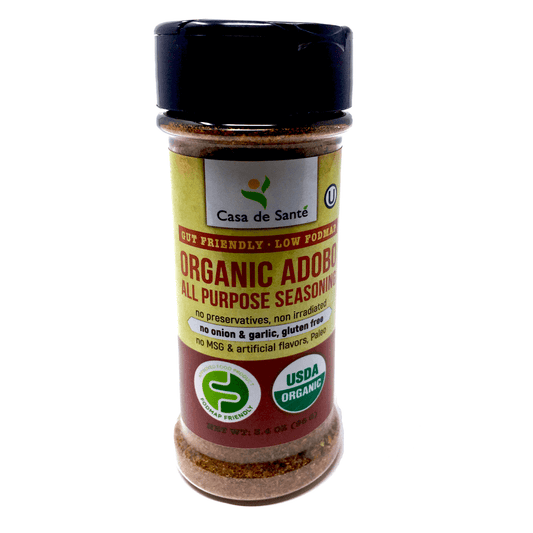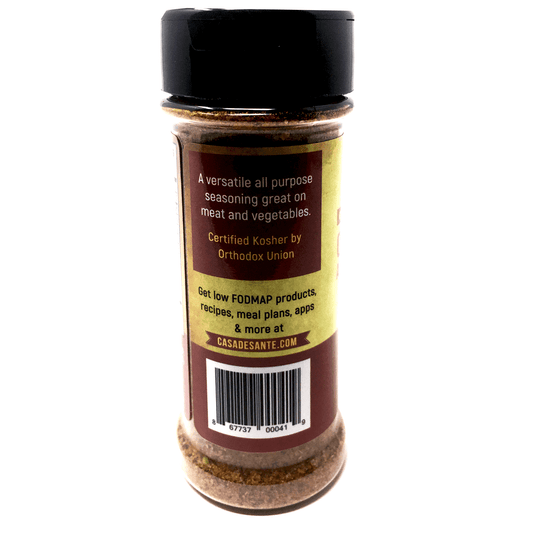What Works For Me: Milkshakes That Do Not Trigger My IBS
Living with Irritable Bowel Syndrome (IBS) can be challenging, especially when it comes to dietary choices. As someone who loves milkshakes but has struggled to find ones that don't trigger my IBS symptoms, I embarked on a journey to create delicious milkshakes that are gentle on my digestive system. In this article, I will share my insights and tips for crafting IBS-friendly milkshakes that still satisfy your taste buds.
Understanding IBS and Dietary Triggers
Defining IBS: A Brief Overview
IBS, short for Irritable Bowel Syndrome, is a common gastrointestinal disorder that affects the large intestine. It is characterized by a range of uncomfortable symptoms such as abdominal pain, bloating, diarrhea, and constipation. These symptoms can significantly impact a person's quality of life, causing discomfort and distress.
While the exact cause of IBS remains unknown, researchers and medical professionals believe that a combination of factors contribute to its development. These factors include diet, stress, gut sensitivity, and abnormalities in the gut-brain axis, which is the communication network between the gut and the brain.
Understanding the triggers that can worsen IBS symptoms is essential for managing the condition effectively. By identifying and avoiding these triggers, individuals with IBS can experience relief and improve their overall well-being.
Common Food Triggers for IBS
When it comes to managing IBS, being aware of common food triggers is crucial. Certain foods have been found to exacerbate symptoms and should be avoided or consumed in moderation. These triggers can vary from person to person, as each individual's gut sensitivity and tolerance levels differ.
High-fat foods, such as fried and greasy dishes, have been known to trigger IBS symptoms in many individuals. These foods can be difficult to digest and may lead to increased bloating, abdominal discomfort, and changes in bowel habits. It is advisable for people with IBS to opt for low-fat alternatives and cook their meals using healthier cooking methods like baking or grilling.
Spicy foods, while enjoyable for some, can be a nightmare for those with IBS. The capsaicin present in spicy foods can irritate the gastrointestinal tract, leading to increased inflammation and discomfort. Avoiding or reducing the consumption of spicy dishes can help alleviate symptoms and prevent flare-ups.
Caffeine, found in various beverages such as coffee, tea, and energy drinks, is another common trigger for IBS. It acts as a stimulant to the digestive system, increasing gut motility and potentially causing diarrhea or abdominal pain. Limiting caffeine intake or switching to decaffeinated options can be beneficial for individuals with IBS.
Alcohol, although enjoyable in moderation for many, can be problematic for those with IBS. It can irritate the gastrointestinal lining and disrupt the balance of gut bacteria, leading to increased symptoms. It is advisable for individuals with IBS to be mindful of their alcohol consumption and opt for non-alcoholic alternatives when possible.
Artificial sweeteners, commonly found in diet sodas, sugar-free candies, and certain processed foods, can also trigger IBS symptoms in some individuals. These sweeteners, such as aspartame and sucralose, are known to have laxative effects and can cause bloating and gas. Reading food labels carefully and choosing products without artificial sweeteners can help manage symptoms effectively.
Dairy products, especially those containing lactose, can be problematic for individuals with IBS. Lactose intolerance, which is the inability to digest lactose, the sugar found in milk and dairy products, is common among people with IBS. Consuming lactose-containing foods can lead to bloating, gas, diarrhea, and abdominal pain. Opting for lactose-free alternatives or trying lactase supplements can help individuals with IBS enjoy dairy without experiencing symptoms.
It is important to note that while these are common food triggers for IBS, they may not affect everyone in the same way. Keeping a food diary and tracking individual reactions to different foods can help identify personal triggers and tailor the diet accordingly.
The Role of Dairy in IBS
IBS, or Irritable Bowel Syndrome, is a common gastrointestinal disorder that affects millions of people worldwide. It is characterized by a variety of symptoms, including abdominal pain, bloating, diarrhea, and constipation. While the exact cause of IBS is unknown, it is believed to be a combination of factors, including diet, stress, and abnormalities in the gut microbiome.
Lactose Intolerance vs. IBS
Lactose intolerance is often confused with IBS, as they share similar symptoms. However, it's essential to understand the distinction between the two. Lactose intolerance is the inability to digest lactose, the sugar found in milk and dairy products, due to a deficiency in the enzyme lactase. When lactose is not properly digested, it can ferment in the gut, leading to symptoms such as bloating, gas, and diarrhea. In contrast, IBS is a more complex condition that involves various triggers and sensitivities beyond lactose intolerance alone.
While lactose intolerance can cause similar symptoms to IBS, it is important to note that not all individuals with IBS are lactose intolerant. In fact, studies have shown that only a subset of IBS patients have lactose intolerance as a trigger for their symptoms. This highlights the need for a personalized approach when it comes to managing IBS and dairy consumption.
Choosing the Right Dairy for Your Digestive Health
If you suspect that dairy might be a trigger for your IBS symptoms, it's worth exploring alternatives that are easier on your digestive system. Many individuals with IBS find success with lactose-free dairy products or those made from A2 milk, which contains a different type of protein than regular milk. Lactose-free dairy products have the lactose removed, making them easier to digest for those with lactose intolerance. A2 milk, on the other hand, contains only the A2 beta-casein protein, which some studies suggest may be easier to digest for individuals with digestive sensitivities.
It is important to note that while lactose-free and A2 dairy products may be beneficial for some individuals with IBS, they may not work for everyone. Each person's digestive system is unique, and what works for one person may not work for another. Therefore, it is essential to listen to your body and pay attention to how different dairy products affect your symptoms.
Experimenting with different options can help you identify what works best for you. Some individuals with IBS may find that they can tolerate small amounts of dairy without experiencing symptoms, while others may need to avoid dairy altogether. It is also worth considering other factors such as the quality of the dairy products you consume. Opting for organic or grass-fed dairy products may be beneficial, as they are often free from hormones and antibiotics that could potentially exacerbate IBS symptoms.
In conclusion, while dairy can be a trigger for some individuals with IBS, it is not the sole cause of the condition. Understanding the distinction between lactose intolerance and IBS is crucial in managing symptoms effectively. By exploring alternative dairy options and paying attention to your body's response, you can make informed choices that support your digestive health.
Crafting the Perfect IBS-Friendly Milkshake
Selecting Suitable Ingredients
When it comes to an IBS-friendly milkshake, ingredient selection is key. Opt for low-fat or lactose-free milk as the base, as it reduces the risk of triggering symptoms. Not only does this choice provide a creamy texture, but it also ensures that individuals with lactose intolerance can enjoy this delicious treat without discomfort.
Adding fruits like bananas, berries, or peaches not only enhances the flavor but also provides essential nutrients and dietary fiber. Bananas, for example, are rich in potassium and can help regulate digestion. Berries, on the other hand, are packed with antioxidants that can support gut health. And peaches, with their juicy and sweet taste, add a refreshing twist to your milkshake.
But why stop there? Let's take it a step further. How about incorporating some leafy greens like spinach or kale? These nutrient powerhouses not only add a vibrant green color to your milkshake but also provide a good dose of vitamins and minerals. Spinach, for instance, is an excellent source of iron, while kale is packed with vitamin K.
Oatmeal or chia seeds can also be great additions to boost fiber content. Oatmeal adds a subtle nutty flavor and a creamy texture to your milkshake, while chia seeds provide a delightful crunch. Both of these ingredients are known for their ability to promote healthy digestion and regulate bowel movements.
Balancing Taste and Digestive Comfort
One of the challenges in creating an IBS-friendly milkshake is striking the right balance between taste and digestive comfort. Experiment with different flavor combinations, such as vanilla with a hint of cinnamon or cocoa powder, to find what appeals to your taste buds. The warmth of cinnamon can add a comforting touch to your milkshake, while cocoa powder brings a rich and indulgent flavor.
Additionally, consider adding a natural sweetener like honey or maple syrup instead of artificial sweeteners, which can be problematic for some individuals with IBS. Honey not only adds sweetness but also offers potential health benefits, such as antioxidant and antibacterial properties. Maple syrup, on the other hand, provides a unique and distinct flavor that pairs well with various ingredients.
Now, let's talk about texture. If you prefer a thicker milkshake, you can add a spoonful of Greek yogurt or a ripe avocado. These ingredients not only contribute to a creamy consistency but also provide additional nutrients. Greek yogurt is high in protein and probiotics, which can support gut health, while avocados are packed with healthy fats that can help keep you satiated.
Lastly, don't forget to garnish your milkshake with some extra toppings. Sprinkle some crushed nuts, such as almonds or walnuts, for added crunch and a boost of healthy fats. You can also add a sprinkle of cinnamon or a drizzle of chocolate sauce for a visually appealing presentation.
Exploring Non-Dairy Alternatives for Milkshakes
The Benefits of Plant-Based Milks
For those who prefer to avoid dairy altogether, plant-based milks can be an excellent alternative. Almond milk, coconut milk, soy milk, and oat milk are popular choices that offer a creamy texture and a range of flavors. These plant-based milks are typically lactose-free and can be easier to digest for individuals with IBS.
Creating Delicious Non-Dairy Milkshakes
Crafting non-dairy milkshakes requires a slightly different approach. Blend your favorite plant-based milk with fruits, such as mangoes, pineapple, or strawberries, to create refreshing and flavorful combinations. You can also experiment with additions like nut butter, cocoa powder, or spices like turmeric or ginger for a unique twist.
Tips for Enjoying Milkshakes with IBS
Moderation is Key
While it's exciting to have found milkshake options that are friendly to your digestive system, it's essential to remember that moderation is key. Even with IBS-friendly ingredients, consuming excessive quantities may still lead to discomfort. Listen to your body and enjoy your milkshakes in moderation to maintain a balanced diet.
Listening to Your Body's Signals
Everyone's body is unique, so it's crucial to stay attentive to how specific ingredients and combinations affect your IBS symptoms. Keeping a food diary can help you identify triggers and make informed decisions about which milkshakes work best for you. If a certain ingredient consistently causes issues, consider excluding it from your milkshake recipes.
Creating milkshakes that do not trigger my IBS has been a journey of trial and error, but it has been worth the effort. With a better understanding of my dietary needs and by carefully selecting ingredients, I can now enjoy delicious, nourishing milkshakes without worrying about my IBS symptoms. I hope these insights and tips help you find the perfect milkshake that works for you and your digestive health. Cheers to tasty and gut-friendly milkshakes!
























